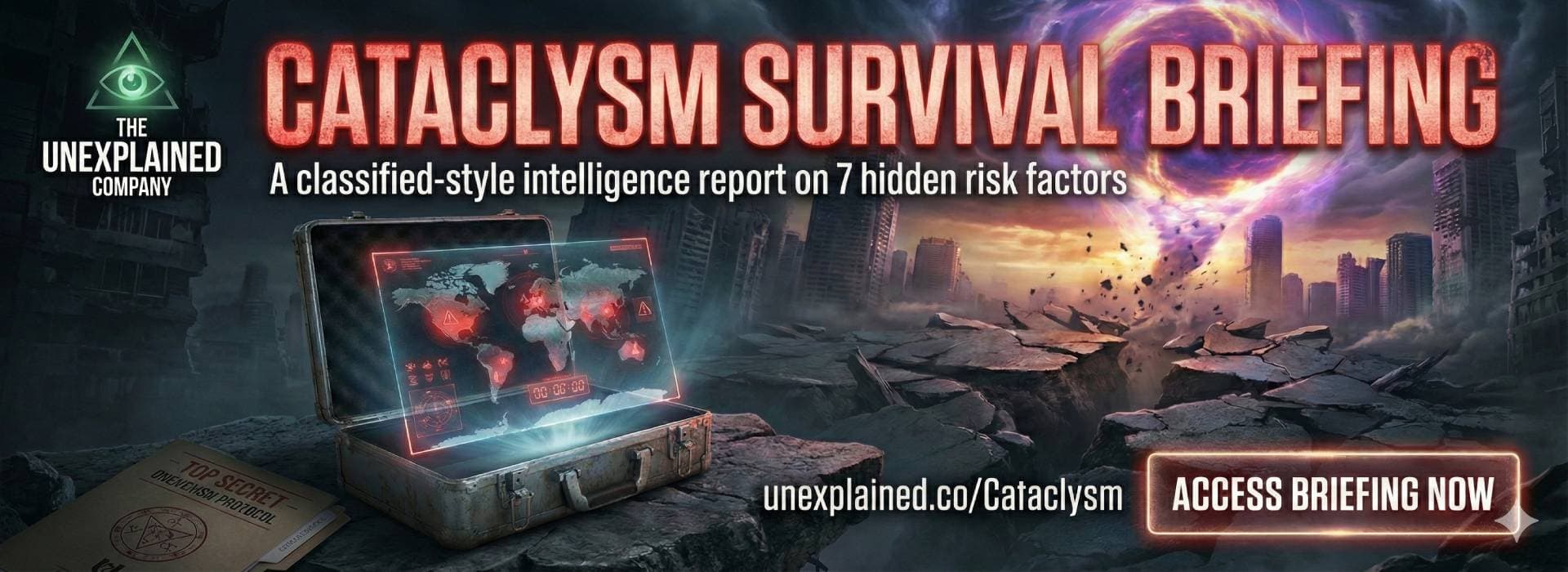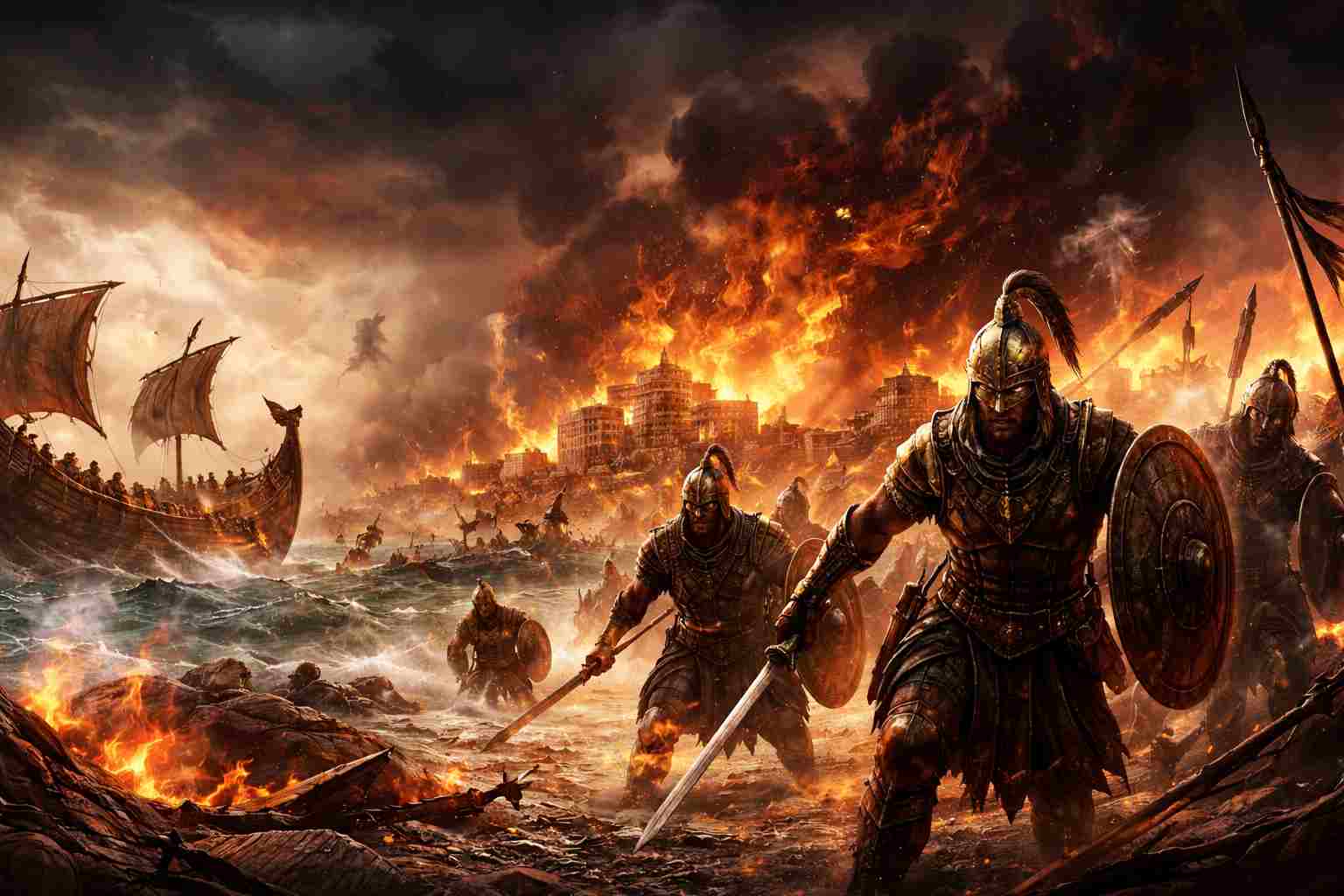Ice, ambition, and power moves define global politics. In a jarring week, America rekindled its interest in Greenland, France and Germany strengthened their defense collaboration, Tripoli sank deeper into chaos, and Venezuela escalated tensions over Essequibo. Every thread seemed to tighten globally, igniting old tensions and creating new ones—prompting diplomats, analysts, and survivalists to pay attention.
The pulse of change resonates from Arctic cliffs to South American jungles, from Colorado’s granite bunkers to Tripoli’s rain-soaked streets. In such instability, every border could be a fault line, and each handshake might conceal betrayal.
Greenland’s Strategic Role: Desire, Defense, and a Superpower Standoff
Greenland, once merely the largest expanse of ice and tundra, now occupies a pivotal position in superpower strategy. Trump’s 2019 remarks about buying Greenland (admit it—did you foresee that?) underscored the island’s military and resource significance. Climate change is melting its ice, exposing valuable minerals and new shipping routes. Greenland has become a focal point—not just for Washington, but for Moscow and Beijing as well. The depth of U.S. fixation has revived fears of a Cold War-style resource race, paralleling conspiracy theories that suggest underground military sites hide deeper, older secrets.
Greenland’s autonomy from Denmark, its strategic position between North America and Eurasia, and its colonial legacies complicate any external influence—echoes familiar to observers of other territorial conflicts and those concerned about hidden global histories.
Franco-German Defense: Building a European Power Bloc
This week, Franco-German defense cooperation advanced significantly, with leaders signing agreements for next-gen combat tanks—strengthening Europe’s security and autonomy. As detailed in this report on joint defense, France and Germany see unity as their strength amid global chaos. Their partnership not only defends against external threats but also signals Europe’s resolve to carve its own path, especially as U.S. interests shift toward the Arctic and Pacific.
However, history reveals that genuine continental defense faces challenges akin to icy terrain, marred by political conflicts and diverging visions—reflecting the deep divides seen in reactions to threats like the Aegean seismic events and Pacific Northwest megaquake realities. Today’s Franco-German actions both reveal and influence a continent that understands the fragility of alliances during geopolitical storms.
Tripoli’s Unraveling: The Mediterranean Meltdown
Meanwhile, Libya stands on edge, with Tripoli engulfed in violence amid a complex web of militias, regional supporters, and global players. Each rebel gain and governmental failure offers opportunities for external actors—Russia, Turkey, and Western Europe—to further their goals. This turmoil mirrors past warnings in science-backed doomsday prophecies and unresolved post-colonial conflicts. The Mediterranean has never appeared more volatile.
This local turmoil always threatens to spill over, affecting migration, arms transfers, and trade throughout the region. In this volatile environment, any new trigger—be it an economic crisis or international interference—could alter the geopolitical landscape drastically.
Venezuela and Essequibo: Borders, Oil, and Brinkmanship
Across the Atlantic, Venezuela has intensified its stance against Guyana over the Essequibo territory, rich in oil and national pride. As France24’s coverage shows, this dispute is far from a simple border issue—it entails brinkmanship with serious economic and humanitarian implications for the entire region. In a world fixating on climate anomalies, as explored in South America’s recent historic freeze, such resource disputes reveal the volatility and fragility of border conflicts.
Global media intensely scrutinizes the risk of wider conflict, particularly as Venezuela’s internal turmoil drives increasingly dangerous actions. The interconnected nature of today’s crises—economic, climatic, and military—implies that troubles in Essequibo could reverberate beyond Venezuela or Guyana.
From the Arctic to the Equator: Instability Is the New Normal
This week’s barrage of flashpoints emphasizes a universal principle for the anxious, curious, and prepared: not even ice sheets or ancient jungles can shield us from big power politics. To understand the currents shaping the future—be it a standoff beneath Arctic ice, new power dynamics in Europe, or sudden upheaval in equatorial forests—observe closely who acts and who follows.
For dedicated observers tracking every facet of this unfolding drama, Unexplained.co provides continuous updates from the frontlines of uncertainty. As the world accelerates, heed this clear warning: significant shifts might already be on the horizon—unseen on satellite maps or not.





